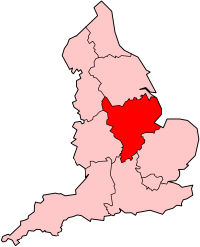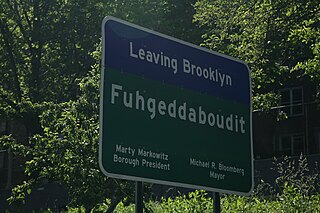British English is the set of varieties of the English language native to the island of Great Britain. More narrowly, it can refer specifically to the English language in England, or, more broadly, to the collective dialects of English throughout the British Isles taken as a single umbrella variety, for instance additionally incorporating Scottish English, Welsh English, and Ulster English. Tom McArthur in the Oxford Guide to World English acknowledges that British English shares "all the ambiguities and tensions [with] the word 'British' and as a result can be used and interpreted in two ways, more broadly or more narrowly, within a range of blurring and ambiguity"..
Spoken English shows great variation across regions where it is the predominant language. The United Kingdom has a wide variety of accents, and no single "British accent" exists. This article provides an overview of the numerous identifiable variations in pronunciation. Such distinctions usually derive from the phonetic inventory of local dialects, as well as from broader differences in the Standard English of different primary-speaking populations.
This article outlines the differences between Malaysian English, Malaysian Colloquial English (Manglish) and British English, which for the purposes of this article is assumed to be the form of English spoken in south east England, used by the British Government, the BBC and widely understood in other parts of the United Kingdom.

Non-native pronunciations of English result from the common linguistic phenomenon in which non-native speakers of any language tend to transfer the intonation, phonological processes and pronunciation rules of their first language into their English speech. They may also create innovative pronunciations not found in the speaker's native language.

É or é (e-acute) is a letter of the Latin alphabet. In English, it is used for loanwords, romanization or occasionally as a pronunciation aid in poetry.
Filipinoorthography specifies the correct use of the writing system of the Filipino language, the national and co-official language of the Philippines.

Scouse, more formally known as Liverpool English or Merseyside English, is an accent and dialect of English associated with the city of Liverpool and the surrounding Liverpool City Region. The Scouse accent is highly distinctive as it was influenced heavily by Irish and Welsh immigrants who arrived via the Liverpool docks, as well as Scandinavian sailors who also used the docks, and thus has very little in common with the accents found throughout the rest of England. People from Liverpool are known as Liverpudlians, but are usually called Scousers; the name comes from scouse, a stew originating from Scandinavian lobscouse eaten by sailors and locals.

West Country English is a group of English language varieties and accents used by much of the native population of the West Country, an area found in the southwest of England.
Colognian or Kölsch is a small set of very closely related dialects, or variants, of the Ripuarian group of dialects of the Central German group. These dialects are spoken in the area covered by the Archdiocese and former Electorate of Cologne reaching from Neuss in the north to just south of Bonn, west to Düren and east to Olpe in northwest Germany.
English rarely uses diacritics, which are symbols indicating the modification of a letter's sound when spoken. Most of the affected words are in terms imported from other languages. The two dots accent, the grave accent and the acute accent are the only diacritics native to Modern English, and their usage has tended to fall off except in certain publications and particular cases.
The phonological history of English includes various changes in the phonology of consonant clusters.
This article describes those aspects of the phonological history of English which concern consonants.

East Midlands English is a dialect, including local and social variations spoken in most parts of East Midlands England. It generally includes areas east of Watling Street, north of an isogloss separating it from variants of Southern English and East Anglian English, and south of another separating it from Northern English dialects. This includes the counties of Derbyshire, Leicestershire, Lincolnshire, Nottinghamshire, Rutland and Northamptonshire. Dialects of northern Derbyshire, Nottinghamshire and Lincolnshire usually share similarities with Northern English dialects. Relative to other English dialects, there have been relatively few studies of East Midlands English.

The Cheshire dialect is a Northern English dialect spoken in the county of Cheshire in North West England. It has similarities with the dialects of the surrounding counties of Merseyside, Greater Manchester, Staffordshire, Shropshire, and Derbyshire.
The English language spoken and written in England encompasses a diverse range of accents and dialects. The language forms part of the broader British English, along with other varieties in the United Kingdom. Terms used to refer to the English language spoken and written in England include English English and Anglo-English.

Manchester dialect or Manchester English, known informally as Mancunian or Manc, is the English accent and dialect variations native to Manchester and some of the Greater Manchester area of England. Sharing features with both Northern and West Midlands English, it is closely related to its neighbours like the Lancashire dialect and the West Riding dialect of Yorkshire.

Welsh English comprises the dialects of English spoken by Welsh people. The dialects are significantly influenced by Welsh grammar and often include words derived from Welsh. In addition to the distinctive words and grammar, a variety of accents are found across Wales, including those of North Wales, the Cardiff dialect, the South Wales Valleys and West Wales.
Cayman Islands English is an English variety spoken in the Cayman Islands. While not much has been written on Cayman Islands English, according to one text, it "seems to have borrowed creole features similar to Jamaican Patois, Bay Islands English and San Andrés and Providencia Creole without having undergone creolization". African-American vernacular English and Jamaican Patois have also heavily influenced the way younger Caymanians speak.

The sound system of New York City English is popularly known as a New York accent. The New York metropolitan accent is one of the most recognizable accents of the United States, largely due to its popular stereotypes and portrayal in radio, film, and television. Several other common names exist for the accent that associate it with more specific locations in the New York City area, such as Bronx accent, Brooklyn accent, Queens accent, Long Island accent, North Jersey accent, etc.; however, no research has demonstrated significant linguistic differences between these locations.










